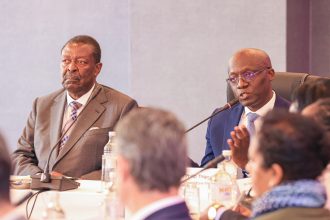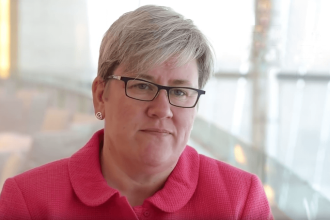By Sylvester Mpinganjira
Poverty, culture and traditions are barriers that could derail Africa’s quest for harnessing demographic dividends, and ending harmful practices such as early child marriages, a parliamentary forum at the ongoing ninth Africa population conference in Lilongwe, Malawi noted.
Gathered under the theme closing Africa’s policy limitation gap in Population and Development, Members of parliament drawn from Kenya, Malawi, Zambia, Uganda, Lesotho, Mozambique, Zimbabwe, Seychelles, Somalia, the DR Congo, South Africa, Ghana, Rwanda, Tanzania among others noted that innovative strategies to counter opposition to sexual education advanced by the traditional leaders and faith groups could help put the continent on the right path.
“In most communities, the onset of menstruation periods are being taken as passage into adulthood and regardless of the age involved, the girl child will begin to be treated as an adult woman and expected to do all that such a woman is supposed to,” said Hon Mungusulwa Mwambande, from the Malawian National Assembly. “Such traditional talk has perpetuated early child marriages and parents have a way of cheating the girls’ ages when caught for contravening early child marriage laws,” he said.
According to Hon. Enock Genasi Phale, although Malawi has a law banning marriage of girls under 18, 40 percent of under-age girls are in marriage.
Cliff Mpundu, an MP from Zambia agreed and said as a strategy to address barriers to population issues, traditional chiefs, particularly in the rural areas need to be part of the policy action.
Catherine Muma, a member of the Senate Assembly in Kenya agreed and noted that in addition to working with traditional leaders, it is also imperative that faith groups be roped into the discussions.
Giving an example from Kenya, Hon Muma noted that the religious leaders have continued to oppose the implementation of comprehensive education in Kenya, a fact she says continues to disempower children as they transition to youth and adult age.
She said Kenya has sexual offence laws that prohibit defilement, rape and violence against women, but this has not stopped the vices. “We need innovative ways to end these, including underage marriages.
Worse, some cultural practices still support harmful child marriages, female genital mutilation, and gender-based violence meted against women,” said Ingrid Marie Mikelsen, Norwegian Ambassador to Malawi.
In many African cultures, a woman is expected to have 4.1 children, which is two births higher than the global average.
This is primarily due to the low status of women, partly contributed by the lower investment in education and access to sexual and reproductive health rights (SRHR) services including effective contraceptive methods.
According to Catherine Gotani Hara, the speaker of the national assembly, Tanzania, Africa is at a critical juncture.
“Our population is growing rapidly with a significant development trajectory. By 2050. Africa’s population is projected to reach 2.5 billion, representing a quarter of the global population. This growth presents both challenges and opportunities,” said Hara.
Malawi has made significant strides in health care with increased access to maternal and child health service.
The government efforts to promote education, particularly for girls, have led to higher enrolment and retention rates in schools.
“I personally think that girl child education is the key because when I do an assessment of my colleagues that went to school, and have managed to finish through two universities, none of them has got more than two or three children. And nobody had to tell us that we have to go for family planning” said Hara.
“Nobody came to us to tell us what we’re supposed to do. It just comes natural. You’re thinking of your career. You’re thinking of how you want your children to be educated. If you want to get a good education, it’s not cheap. Therefore, you’d rather invest with your children, because you want them to have the best. That’s why I’m saying girl child education, for me, is the key,” she noted.
Dr Eliya Zulu, the executive director of the African Institute for Development Policy (AFIDEP) who moderated the session and whose organisation is a co-sponsor of the 9th APC noted that it is time Africa interrogated her policies to harness the youthful population.
We have been talking a lot about the demographic dividend. How are we using it? He asked.
Hon Judith Peace Acen, an MP from Uganda, urged parents not to surrender the responsibility of taking care of their children to teachers nor doctors. “Their role as parents cannot be delegated,” she said.




